

AGRICULTURE
Mary Opoku wins Kintampo Municipal 2018 best farmer
Fifty-six-year-old Mary Opoku, a wisdom from Kunsu community in the Kintampo North Municipality of the Brong Ahafo Region emerged the best farmer for the Kintampo Municipality for 2018. Mary Opoku is blessed with four children and ten dependents.

Date Created : 12/10/2018 11:08:50 PM : Story Author : Rufina Yuoni/Ghanadistricts.com
In crops, she cultivates 6 acres of cashew, ½ acre of mango, 2 acres of palm oil, 10 acres of maize, 15 acres of yam, 15 acres of plantain, 4 acres of cassava, 1 acre of aguishie and 4 acres of cocoyam as well as 3 ¼ acres of vegetables.
In livestock, she keeps 28 goats, 8 pigs and 50 cattle. Also, in poultry farming, she keeps 80 local fowls.
As the municipal best farmer, Mary Opoku took away a tricycle, six piece of cloth, 5 bars of key soap, a pair of wellington boots, 2 machetes, 2 knapsack sprayers, 1 radio set, fertilizer and a packet of roofing sheets for his prize.
Mr. Michael Sarkodie Baffoe, the Municipal Chief Executive (MCE) for Kintampo North Municipal in his welcome address commended gallant farmers in the municipality for contributing to food security in the country.
The MCE thanked the farmers, describing them as "hard working and dedicated farmers" saying their steadfastness, unflinching loyalty and commitment in providing the country's food needs and ensuring that Ghana does not lose out in exiting its main cash crops for national development. He also thanked Agric extension officers for rendering their services to farmers in the communities
He said since the NPP came to power, the government emphasis has been on agricultural modernization to increase efficiency and productivity in food production. “The Government remains committed to rewarding gallant farmers for their contribution to the development of this country”, he assured.
Commenting on the theme of this year's farmers day, "AGRICULTURE"; Moving beyond Aid”, the MCE said it clearly inspired by Government’s vision to transform and modernized Agriculture, and is anchored in the flagship initiatives “Planting for Food and Job (PFJ)” and Planting for Export and Rural Development (PERD).
The MCE outlined the problems of the Agricultural sector to include post-harvest losses, low productivity, weak links with industry, low application of technology, insufficient Agro-financing, land tenure issues and weaknesses along the agriculture value chain – all contributing to the flagging fortunes of Agriculture.
He called for serious focus in the sector and effective implementation of policies and programmes to make the sector attractive to the youth.
"Our prescription for tackling the problems of the Agriculture sector is to operationalize a comprehensive plan to enhance food security, improve farm productivity, strengthen linkages with industry and thereby create jobs, improve rural livelihood and wealth for all Ghanaians", he emphasized.
Mr. Simon Yambore the Municipal Director for Ministry of Food and Agriculture (MoFA) in his address congratulated the hardworking farmers and praised them for striving hard to gain recognition.
On PFJs, the MOFA Director said with only 7 Agric Extension officers, and 3 veterinary officers, a total of 6221 farmers (3562 males and 2659 females) were registered. He added that over 10,049 bags of fertilizers and about 600 bags of improved seeds for maize and sorghum were supplied at subsidized prices to farmers for 2018.
He noted that the challenged faced that the Planting for Food and Jobs faced was the Fall Army Worm (FAW) attacks. He said, the timely and adequate distribution of free chemicals to farmers by the Agric Ministry helped in bringing the incidence under control.
A total of 752 litres and 760 sachets of chemicals were distributed to farmers to spray their farms against the FAW. A total of 4,053 hectares of farms were sprayed, which benefited 3,266 (1983 males and 1284 females) farmers from the chemicals.
The MOFA Director said the major challenge facing the sector in Kintampo was Bush fires and the influx of Fulani herdsmen cattle. He appealed to the MCE, Assembly members and chiefs to see how these problems can be brought down to the barest minimum for sustainable peace in the farming communities between cattle and crops farmers.



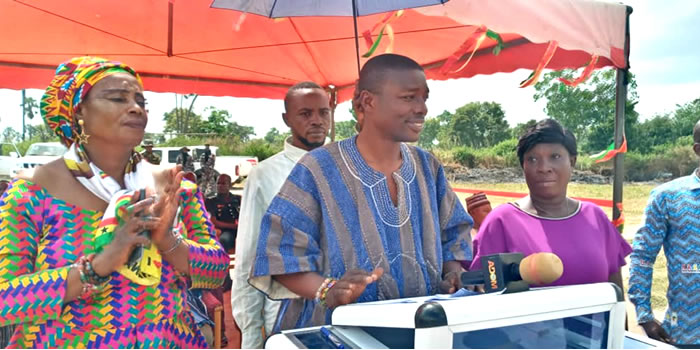


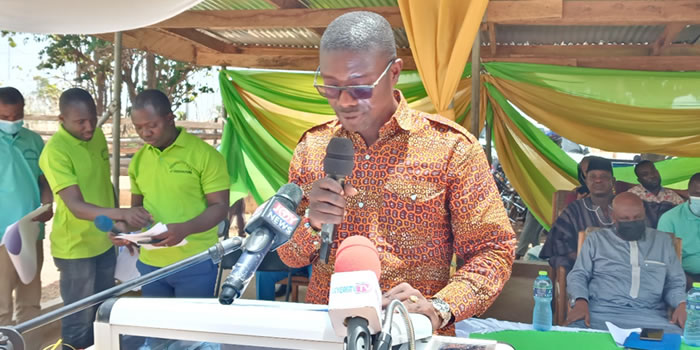
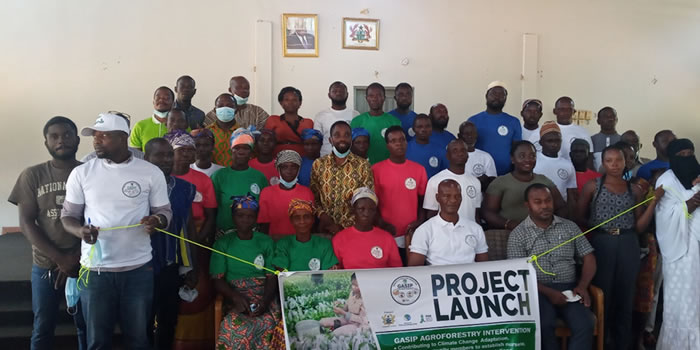
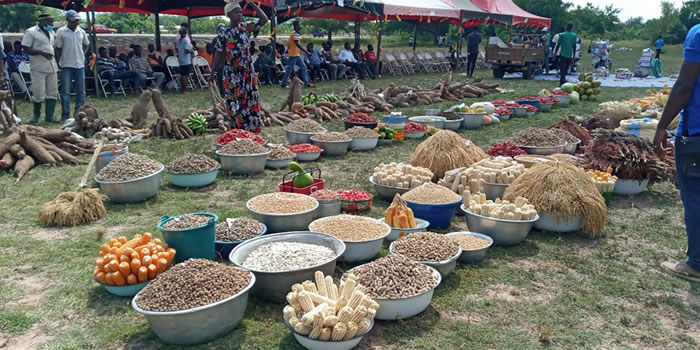
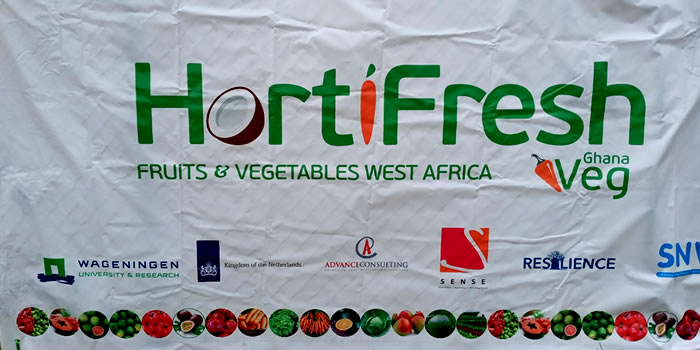
 facebook
facebook
 twitter
twitter
 Youtube
Youtube
 +233 593 831 280
+233 593 831 280 0800 430 430
0800 430 430 GPS: GE-231-4383
GPS: GE-231-4383 info@ghanadistricts.com
info@ghanadistricts.com Box GP1044, Accra, Ghana
Box GP1044, Accra, Ghana